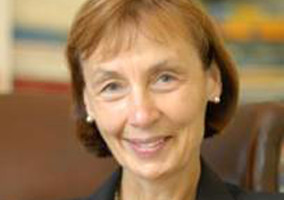The governance model for large charities is “broken” and needs to be fundamentally rethought, a charity lawyer has argued.
Philip Kirkpatrick, head of charities and social enterprise at Bates Wells, outlined an alternative model, styled an “assured unitary governance” model, that would put paid trustees at the heart of running large charities, earlier this week at an event at the University of Liverpool’s London campus.
Kirkpatrick said that the usual board structure of an unpaid group of trustees who meet a few times a year was not an appropriate way to govern large, complex operational charities.
He said: “The governance model for large complex charities is completely broken.” And added that: “It is starting to look a little backward.”
Kirkpatrick added that the expectations of volunteer trustees at large charities is unfair.
He said: “No one can look at what is demanded of part time, unpaid, non-executive trustees of complex operational charities and say it is fair or appropriate that those trustees are held to account for everything the charity does. It is time to recognise realities and offer a new model.”
He added that when something goes wrong it is the chair, not the executive team, who is “dragged up in front of a committee” to be scrutinised by politicians, the media and regulators.
New model
Under his proposed model, charities would have a unitary board, comprised of paid trustees and the senior executive directors, alongside an “assurance” board from the charity’s membership who would be volunteers.
He said this was more “realistic” way of “balancing the roles of trustee and the roles of paid staff”.
It would also mean charities that adopted it “would look more like commercial businesses” and Kirkpatrick added: “This model isn’t going to work for everyone.”
He said the assurance board would be drawn from a charity’s members or existing volunteers and would be a way of keeping volunteerism at the centre of the charity, without making volunteers legally responsible.
The assurance board would be consulted on strategy but have only “limited powers” and not shoulder any legal responsibility should things go wrong.
“I just think it represents a fairer and much more realistic way to manage a modern, large, complex charity. I think it could work for any charity that has staff.”
He said that he thought the model could be adopted without then need for any legal changes.
|
Related articles












